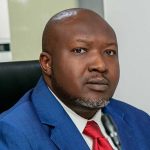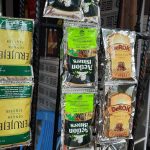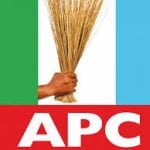By Sufuyan Ojeifo
By this time in 2015, the drums of war were sounding with much ferocity such that morbid fears were triggered in the polity. Nigerians of Igbo extraction, in the northern part of the country, were particularly gripped. Their peripatetic nature predisposes them to such existential threats in periods of national anxiety and collective doubt about the harmony of our shared nationality.
For instance, there is hardly any nook and cranny of Nigeria where you would not find an Igbo plying a trade or the other, no matter how titular. Therefore, the Igbo race always stands at the greatest risk in any situation where imagined and real threats are bandied as articles of faith in a nation that has lost its essence of humanity and togetherness.
The profiles of the candidates of the two leading parties-former President Goodluck Jonathan of the Peoples Democratic Party (PDP) and General Muhammadu Buhari of the All Progressives Congress (APC) – had forcefully, geographically, pitted the south against the north. It had also largely, religiously, projected in the people’s consciousness a contest between Christianity and Islamism as typified by the religions of the two leading candidates.
As it was in 2015 when the nation was handed a fait accompli of a two-horse race, so it is in 2019 with the prospect of another two-horse race despite the plurality or proliferation of political parties and presidential candidates. But there is a tectonic shift in the dynamics of geography and religion that has now reduced the battle for the soul of Nigeria in the February 16 presidential election to the same northern matrix.
And this has largely defused tension and infused a measure of liberality in a people that had hitherto demonstrated aggression in the matter of presidential power politics. This is quite understandable. Head or tail, the north wins in 2019. APC’s Buhari and PDP’s Atiku Abubakar share the same demographics of Fulani ethnicity and Islamic religion.
This scenario, perhaps, explains the relaxed atmosphere and the win-win disposition that are noticeable in the northern part of the country ahead of the crucial presidential election. The immediate utilitarian benefit is the absence of tension and fear of potential genocidal attacks on the vulnerable communities of strangers that constitute largely the Igbo trading minorities in the northern region of the country.
Nevertheless, the emerging trend should not discount the pertinent role of the National Peace Committee under the very respected leadership of former Head of State, General Abdulsalami Alhaji Abubakar (retd.). The exertion by the Committee in 2015 was understandable against the backdrop of the soaking tension and anxiety that charcterised social and political interactions in the northern part. Expectedly, there was an exodus of Igbo and other strangers of north central extraction in the north down to the south and to their various towns and villages in the north central zone.
The fear of the unknown had a context to it. The outcome of the 2011 presidential election continues to resonate in our consciousness with the grimness of the killings of Nigerians, including some youth corps members that officiated in the election, particularly in Bauchi State. When that incident was added to the statement allegedly made by Buhari prelude to the 2015 election that if what (alleged rigging) happened in the 2011 election repeated itself in the 2015 election, the dog and the baboon would be soaked in their blood.
Indeed, the General Abubakar-led National Peace Committee had worked round the clock to instill confidence in the system and to douse tension. It had specifically committed leaders of the political parties as well as the presidential stakeholders and candidates to a peaceful and successful process. Jonathan and Buhari were made to sign a Memorandum of Understanding (MoU) for peace. And the Committee ensured that that the candidates kept fidelity to the terms of the MoU.
Significantly, the success of the 2015 presidential election and the considerations that motivated former president, Goodluck Jonathan, to accept the outcome of the election derived, somewhat, from the work of the committee of eminent Nigerians, including among others, John Cardinal Onaiyekan, Primate Nicholas Okoh, Matthew Hassan Kukah, Commodore Ebitu Ukiwe, Aliko Dangote, Mrs. Priscilla Kuye and Professor Ibrahim Gambari.
The Committee has already kicked in to rein in presidential candidates in the 2019 election in the much-revered tradition of peaceful poll reminiscent of the advance democracies and following back-to-back on the heels of the peaceful conduct and outcome of the 2015 presidential election. There have been reasonable expectations that the exercise would be violence-free.
And there had been no cause for doubt, until that expectation was upended by the direct threat issued by the governor of Kaduna State, Malam Nasir el-Rufai when he featured on NTA Tuesday Live programme on February 5, 2019 to the extent that foreigners who interfered in the nation’s electoral process would be returned to their countries in body bags. That threat has since cast a pall of doubt on the assured success of the assignment of the National Peace Committee.
el-Rufai’s statement was much more than a Freudian slip. It was as unguarded as it was unconscionable and insensitive. One could see the seriousness and passion he invested in the articulation of the misguided verbal shot. One could see the expression of outright revulsion on the face of the programme’s anchor, Cyril Stober, at the governor’s statement.
That self l-indictment should ordinarily nudge the Abdulsalami committee into some new realities about other influencers below the presidential candidates whose overzealousness and misconstruction of the disposition and body language of their presidential candidates can wrongly or even deliberately ignite electoral violence in the face of anxieties precipitated by the prospects of a looming defeat.
General Abubakar and his committee members are on the cusp of making another history-the history of intervening in critical electoral process to achieve peaceful outcome. They have a date with destiny, so to speak, to preserve the collective destiny of the Nigerian nation. Abubakar and his members have the gravitas, the global and national respectability, and all that it takes to deliver on their assignment. They must double down on the task before them.
What is paramount is the successful transition of democratic power on May 29, this year, through a peaceful process that begins on February 16 and terminates on March 2. The flip side of the expected peaceful electoral process and outcome is a potential chaos that may put Nigeria on the road to the oddities in Venezuela and some other similar climes, if some power mongers succeed in having their way in spite of the popular verdict.
The greatest fear is that the furtherance and preservation of cliquish political agenda may put Nigeria on the road to Kigali or those other territories where electoral propriety had been sacrificed on the altar of unconscionable manipulation of the people’s will, brazen abridgment of the freedom of electoral choices and subjugation of the people’s sacred mandate freely given but wickedly hijacked and diverted.
Now that el-Rufai has played his hand early in the day ahead of the election, the General Abubakar-led National Peace Committee must now act proactively in concert with the members of the international community to ensure that potential flashpoints are nipped in the bud. The Committee must deploy the magnitude of the character, influence and connections of its members in reenacting the kind of mechanism, this time round, that culminated in the peaceful outcome of the 2015 presidential election.
The best way for the General Abubakar-led National Peace Committee to define its eon in the evolution of a pragmatic, peaceful and non-mechanistic power distribution process is to bequeath a tradition of negotiated orderly conduct and transfer of power in the nation’s presidential politics in the years ahead. The legacy will, over time, become entrenched and internalized such that it becomes a normative order- a part and parcel of our enviable democratic tradition as a nation.
*Ojeifo contributed this piece from Abuja via ojwonderngr@yahoo.com
























Leave a comment